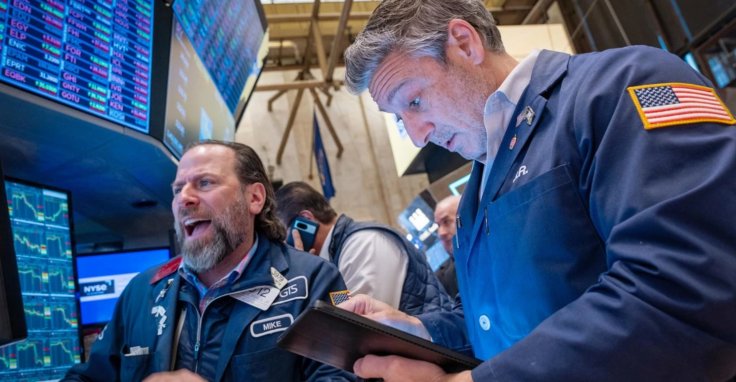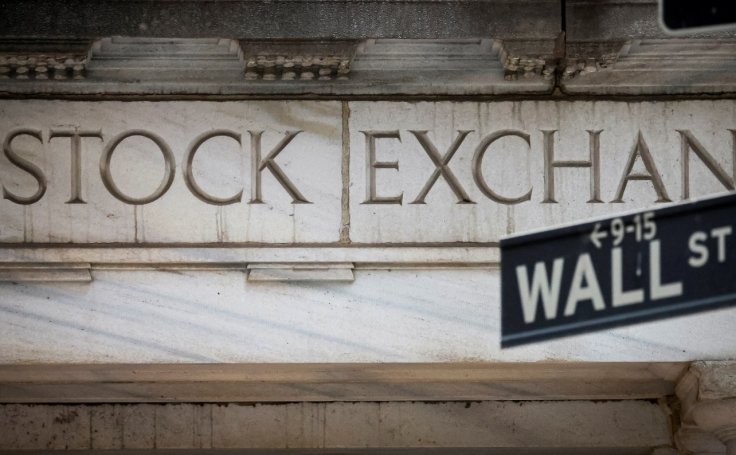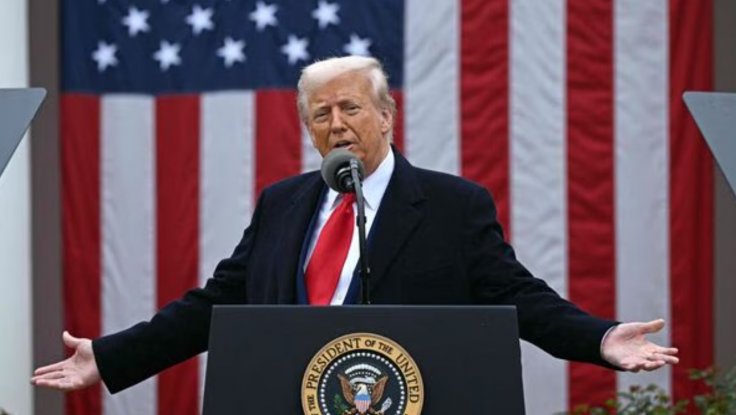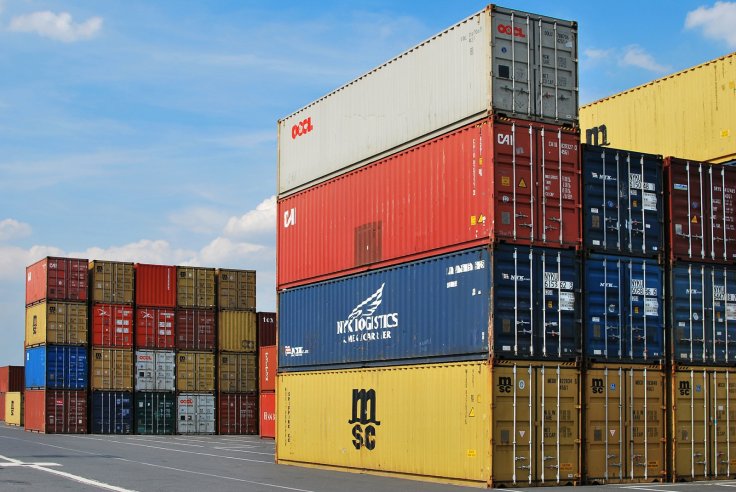The Wall Street bloodbath continued for the second straight session on Friday, with the Dow Jones Industrial Average plunging over 2,200 points, following China's announcement of harsh counter-tariffs in response to President Donald Trump's tariffs. The S&P 500 and Nasdaq also fell 6% and 5.9% respectively.
The Dow nosedived by 2,231 points, coming right after a 1,679-point decline the day before — which had already marked its worst single-day performance since the early days of the Covid-19 pandemic in 2020. The two-day selloff has now wiped out a whopping $6.4 trillion in market value, with several experts claiming that this is just the beginning and the worst is yet to come.
Wall Street Bleeds

The Nasdaq has plummeted over 20% from its high point in December, officially entering what's known as a bear market. "For investors looking at their portfolios, it could have felt like an operation performed without anesthesia," said Brian Jacobsen, chief economist at Annex Wealth Management
Global stock markets kept sliding as investors grew increasingly worried that Trump's retaliatory tariff strategy — which includes a baseline 10% tax and steeper rates for several countries — might trigger inflation and potentially lead to a recession.

Meanwhile, the CBOE Volatility Index, often referred to as Wall Street's "fear gauge," surged to its highest point since April 2020, when the Covid-19 pandemic began.
The Wall Street sell-off was triggered after China's finance ministry announced it would slap 34% tariffs on all U.S. imports beginning April 10 — just one day after Trump's 54% reciprocal tariff is scheduled to take effect.
"We're beginning to see the inevitable retaliation from the global trade partners of the United States. The risk is that this tips a recession scare into a full-blown recession," Ben Laidler, head of equity strategy at Bradesco BBI, said.

Federal Reserve Chairman Jerome Powell warned during an event in Arlington, Virginia, on Friday that the tariffs could potentially fuel inflation. "While tariffs are highly likely to generate at least a temporary rise in inflation, it is also possible that the effects could be more persistent," Powell said.
"Uncertainty is high," he said. "What we've learned is that the tariffs are higher than anticipated, higher than almost all forecasters predicted."
Just the Beginning
Traders continued to expect a more flexible approach from the Federal Reserve, with money market futures now reflecting anticipated rate cuts totaling 100 basis points by year's end — up from around 75 basis points just a week ago.

U.S. bank stocks extended their losses on Friday, as the global banking sector came under pressure amid growing expectations of further interest rate cuts and concerns that tariffs could slow down economic growth.
Shares of major banks like Bank of America, JPMorgan Chase, and Citigroup each tumbled by more than 7%. Meanwhile, companies with significant ties to China saw widespread declines. Apple's stock fell by 7.3%, and the semiconductor index slid 7.6%.
Ray Dalio, chief investment officer at Bridgewater Associates, cautioned that the tariffs are likely to cause major stagflation in the U.S. while leading to deflation and possible recession in the countries facing the sanctions.

"Expect the ride ahead to produce some very big tests and shakeouts that will be great tests of investors' skills as the critically important monetary, domestic political, and international geopolitical orders are breaking down," Diallo said.









